- 1. The landscape of Digital PR in Germany
- 2. The German media: Where to earn the best links
- 3. What works in German Digital PR: Campaign strategies & real results
- 4. Outreach in Germany: How to succeed with German journalists
- 5. Language & localisation: Why you need native expertise
- 6. The SEO & business impact of regional link building
- 7. Why Reboot Online? Your Digital PR partner for Germany
1. The landscape of Digital PR in Germany
Germany has a wide and varied media landscape which distinguishes itself through well-researched and highly authoritative publications. As opposed to other countries, like the UK, German journalism in general places much more emphasis on serious, practical and factual topics and the tabloid scene is consequently not as prevalent. This means there are a plethora of opportunities to gain coverage from highly respected (as well as high DR) outlets.
The main challenge of this market is, at the same time, its greatest opportunity. For example, Digital PR is less established in the German market than in the UK. In the UK, there are twice as many Digital PR Executives as there are journalists, in Germany there are twice as many journalists as digital PR professionals.

This means less competition from other Digital PR Executives, but more competition from the journalists’ own research. A German journalist will only publish information from a press release if they deem it well-researched and see value that they could not have provided through their own work alone.
However, when providing valuable, thoroughly researched content or studies that are relevant to German readers, achieving placements in the German market is a great opportunity to stand out as a thought leader in top-tier publications that are authoritative and trusted by the German audience. This increases online visibility, brand awareness, and link flow where competitors struggle.
2. The German media: Where to earn the best links
Germany’s national and regional news outlets bring high DR, factual authority, and traffic to any placement. Some of the most valuable national outlets for digital PR with DR80+ include:
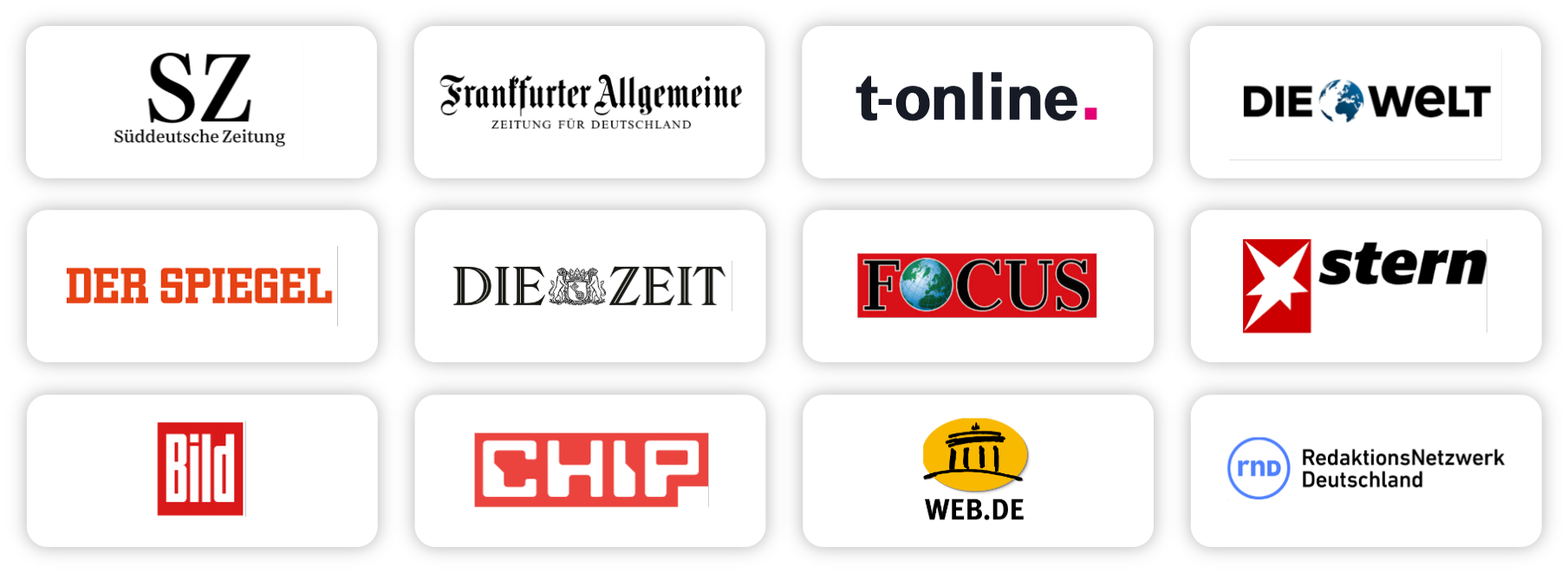
High authority regional outlets with DR80+ include:
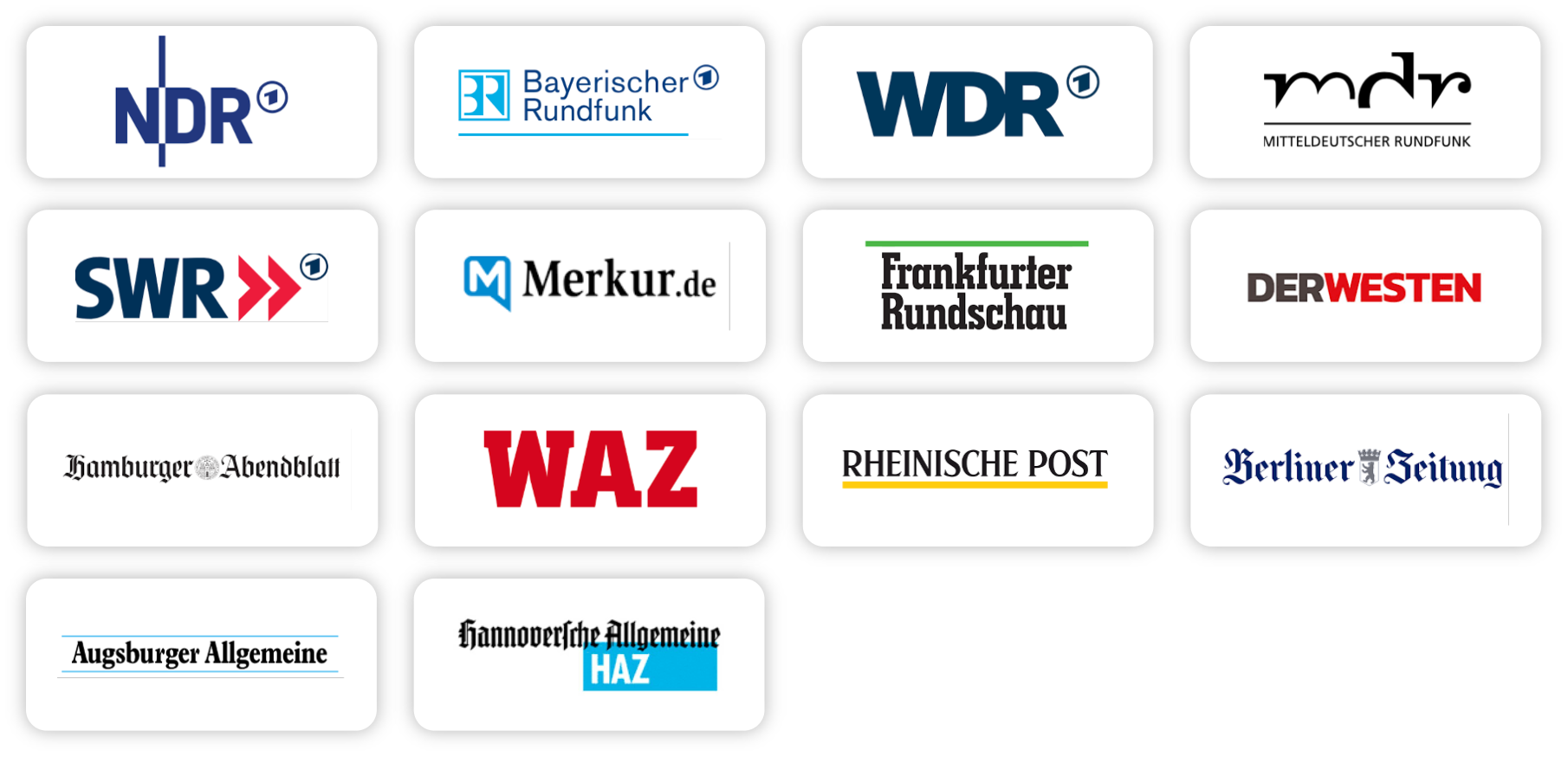
Insights into how to best tailor press releases
 Showing relevancy to the journalists' area of coverage in the subject lines is key
Showing relevancy to the journalists' area of coverage in the subject lines is key
Our data shows that regional angles with tailored subject lines receive open rates of 30-40% on average when the region, state or city is mentioned within the first five words of a subject line. The same goes for industry-specific outreach.
 Highlighting the core topic early in your subject line shows value quickly
Highlighting the core topic early in your subject line shows value quickly
Tailoring to the relevant region or industry alone is not always enough to achieve high open rates. The subject of the study in a campaign should ideally also feature within the first five words of a subject line to help gain the journalist’s interest and establish relevancy.
 Establishing the sender’s name as a reliable media partner increases open rates
Establishing the sender’s name as a reliable media partner increases open rates
A recognisable, established sender, who has built good relationships with journalists, will generally see 25-30% higher open rates than a first-time sender.
The performance of a campaign, of course, depends on how newsworthy it is in the target market. Germany can be especially particular in terms of this. In our experience, serious topics do far better than pure lifestyle topics.
Germany’s media places much more emphasis on topics related to business, economy, safety, and health, making campaigns that touch on these all the more successful. Topics with a lifestyle element that draw on these serious issues can also do well, such as one of our previous campaigns on work-related dreams.
If you want to find out about where to earn the best links in other countries, read our French digital PR guide, Spanish digital PR guide, or US digital PR guide.
3. What works in German Digital PR: Campaign strategies & real results
Data matters in German Digital PR
Apart from the above preferences of German journalists and editors, it is important to note that the data behind a campaign is just as important as the topic itself.
The most successful campaigns are built around authoritative data sources relevant to the German audience, such as:

Additionally, a nuanced evaluation of this data is critical, as this provides more unique value to German journalists. They generally value complexity, as long as it is still communicable to their target readership. German journalists often question the validity of the data provided, so the more thoroughly researched the dataset is and the more well-rounded the campaign’s interpretation is, the more likely it is to achieve coverage even from sceptical journalists.
Overall, the German market is very careful about crediting sources, making it essential for campaigns to be highly relevant to our clients' niches to secure backlinks. Crafting campaigns relevant to a client’s niche positions them as authoritative sources, while also attracting more relevant backlinks, increasing trust flow and more valuable traffic.
Key campaign strategies for Germany
While strong data is a good indicator that a campaign will be successful, different strategies can be used to achieve a client’s specific goals. Below is a small selection of our most successful Digital PR campaign types for the German market. Each of them provides different benefits depending on whether a business needs a high volume of links to close competitor gaps, or fewer more relevant links to help with a website’s domain authority.
Regional & city search data index studies
Regional breakdown campaigns gain 5.84x more links than those without
Our data shows:
This type of campaign is an ideal way to gain backlinks from a large variety of high DR, well-respected regional and local news outlets across Germany, putting the client’s name in front of a broad B2C audience.
Why it works:
- It provides hyper-relevant insights for each region/city, making it stand out from other campaigns.
- Evaluating regional search data in an index study further provides nuance and value to the subject.
Example campaign: The most stressed cities in Germany
For this, we analysed search volumes for “stress”, “stress symptoms”, “how to lower cortisol” and more, per capita for each city in Germany with more than 300,000 inhabitants. These were then weighted by specificity of the search term and factored into an overall index score, by which the cities were ranked.
Results:
Expert analysis & professional insights
Expert advice pieces gain 1 link for every 3 hours worked
Our data shows:
Providing expert advice, either by utilising the client’s expertise or by partnering with an expert, has also proven successful in the German market with a quick turnaround. Practical advice that is relevant to its target audience in a particular sector is very valued by German journalists. Particularly advice or commentary on new and trending topics such as AI or remote work are in demand.
Why it works:
- Campaigns like this position clients as thought leaders and showcase helpfulness and professionalism.
- While these campaigns have a smaller scope, they have a higher chance of gaining coverage in top-tier niche publications that are hyper-relevant to clients’ sectors and help them stand out from competitors.
Example campaign: Expert tips on optimising your application/CV for HR software filters
This campaign provided hands-on practical advice relevant to a broad audience faced with increasing unemployment and major technological changes in general application processes.
Results:
Data-heavy industry rankings
Data-heavy industry rankings gain 2.2x more links than those without
Our data shows:
Data-heavy studies are one of the most successful campaign types in the German market, provided the data comes from a high authority source. More specifically, industry rankings based on large datasets, e.g. from government statistics, are a particularly well-suited type of campaign for clients looking to build links, trust flow and brand awareness in the B2B space. Campaigns with industry and regional data gain 8.42x more links.
Why it works:
- By tailoring sends to each industry featured in the ranking, these campaigns show high relevance to each sector, increasing publication rates.
- They often gain high DR placements across different sectors.
- They position the client as thought leaders in front of potential business partners.
Example campaign: The industries with the highest shortage of skilled workers
This campaign leveraged the shortage of skilled workers as a trending buzzword in the German news, and provided complex insights into the numbers of vacancies and vacancy durations in different sectors, based on job listings.
Results:
4. Outreach in Germany: How to succeed with German journalists
Professional communication varies across both countries and industries. Through years of experience in the German market, we have identified key preferences among German journalists:
![]() Address them formally and politely to show respect and professionalism.
Address them formally and politely to show respect and professionalism.
![]() Less is more.
Less is more.
German journalists prefer press releases to be to-the-point. Small talk, such as “I hope you’re well”, only pushes the actual information further down in the email and wastes time, unless a more personal conversation has been established with a journalist previously.
This sentiment of less is more also extends to feeler emails (emails sent to check if a journalist would be interested in a topic before sending the full press release). German journalists prefer direct access to releases without extra steps. In fact, feeler emails and personalised pitches complementing past coverage generally receive much lower open rates than straight sends of press releases with no niceties at the start.
What is more important to German journalists is a clear demonstration of solid research and robust methodologies in press releases. If they are to cover a press release, it has to pertain to the highest standards of information. Their readers trust the data they publish, so they only publish data they trust themselves. Due to this, German journalists often question information presented in press releases before publication, but they will also be grateful to be provided answers.
Securing coverage in Germany - cheat sheet:
Formal address (no addressing by first names until offered)
No small talk (unless a more personal conversation has been established)
Polite, professional tone
Sending pitches only within working hours
Direct, efficient communication (no ambiguous wordings or statistically incorrect statements)
When to outreach campaigns in Germany
Thursday shows slightly higher open rates than other days of the week
When it comes to campaign send timing, there is no definitive best day or time of day. It is much more important what time of year a campaign is sent, whether it is timely for certain events, seasons or holidays, or whether it is reactive to trending news. However, we have observed some trends in terms of when in a day/week a pitch is sent.
Firstly, it is important to stay within working hours, as this respects boundaries and yields higher open rates. Some journalists will have early shifts, so sending from 7am CET is generally preferable, so they have the information in their inbox at the start of their working day. That said, when working with journalists you have built a rapport with, the send time tends to be less relevant, as they are most likely to show high open rates regardless.
There are no large differences in open rates on different weekdays. However, Thursday shows slightly higher open rates at a slightly higher speed than on other days.
5. Language & localisation: Why you need native expertise
Unfortunately, many Digital PR and marketing agencies rely on AI to translate their international press releases and content. But not us! As a Digital PR agency with a strong client base in Germany, we work with native speakers who provide culturally tailored strategies, ensure grammatical accuracy and use professional journalistic language in our German services. While great improvements in AI translations have been made in the last few years, AI still lags behind in some important ways.
AI vs human translation
 Politeness matters
Politeness matters
As we can all agree, while several wordings might have the same meaning, word choice can make the difference between a polite request and a rude demand.
 Creative flair
Creative flair
AI may be able to translate an eye-catching introduction to a press release correctly, but if the result sounds convoluted or is hard to read, eyes will no longer be caught by it. This issue is particularly prevalent in headlines.
German headlines have their own format, which differs in structure, wording, length and tone from other languages and cultures. Let’s have a look at a real-life example of headlines for our campaign on the most stressed German cities.
While “The most stressed German cities, ranked!” may be a perfectly suitable headline in English, there are several issues with the translation provided by AI (in this case DeepL): “Die am meisten gestressten deutschen Städte, Rangliste!”.

Due to the lack of context, DeepL has translated this headline incorrectly to “The most stressed German cities, ranking!”. It also used the wrong word for “most stressed”. Additionally, this is not a usual format for a German headline. Here is a real-life example from a publication of this campaign in the German magazine Brigitte: “Stress-Städte: An diesen Orten machen sich die Menschen die meisten Sorgen”. This roughly translates to: “Stress-Cities: These are the places where people worry the most”.
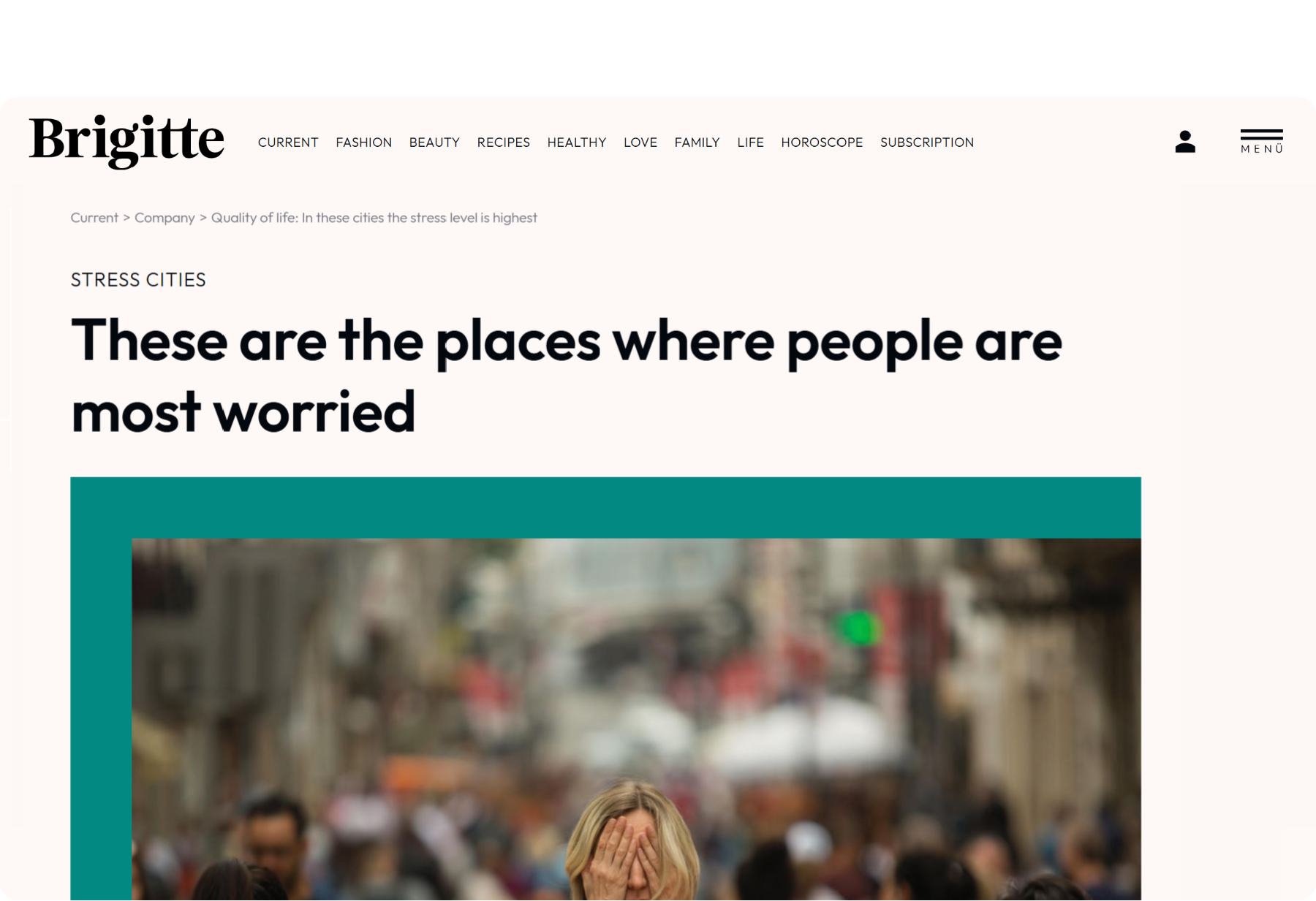
As evident, this headline is longer, but carries the main keyword at the start in a concise compound noun - the strange habit of fusing two nouns together, which as you may know, Germans are very fond of. This kind of creativity, as well as knowing that a German headline prefers a full sentence starting with “These are” or “This is” to pique interest, is key to writing a good German headline, but not a skill AI has mastered yet.
Why humans do it better
Beyond language, there are many more benefits that native speakers bring to our digital PR team:
 Media expertise
Media expertise
They have an intuitive understanding of the media landscape, geography, audience demographics and interests. This is crucial when devising digital PR campaigns for the German market, as well as tailoring campaigns correctly to make them hyper-relevant to every target outlet they are outreaching to.
 Strategic outreach
Strategic outreach
Our German-speaking Digital PR specialists provide strategic value in timing campaign sends around reactive news opportunities, trending topics and buzzwords more widely, and organisational hurdles such as Germany’s federal school holiday system and differing public holidays in different states.
 Data interpretation skills
Data interpretation skills
Germany’s federal state system is historically complex, and a sensitivity to cultural issues (such as the East-West divide and how it still affects some German states today), ensures insightful data presentation and evaluation in a regional study.
6. The SEO & business impact of regional link building
For old-school SEOs, link-building is all about authority. However, the best SEOs know that relevancy is just as important. There are a few different factors that contribute to the relevancy of a backlink, and one key one is the region in which the linking site operates.
While a natural link profile will consist of links from all over the world, and we would value greatly a link from a highly authoritative website outside of our client's market, there is no denying that authority links from publications operating in the same market as the one our client works in are highly sought after.
Besides offering increased relevancy and local authority signals, links from prominent domestic publications also increase the chances of driving referral traffic and conversions, making the overall return offered by earning those links that much greater.
Below, we offer some data that gives a more tangible example of the results that earning links from relevant regional websites can generate. The data focuses on the increases in organic rankings and visibility seen by our client JobLeads (DE), who we’ve been earning DE Digital PR links for in recent months.
Since we’ve been working on the site and earning German links for the client, looking at Ahrefs, we can see a clear increase in organic rankings across a wide range of high-priority keywords.
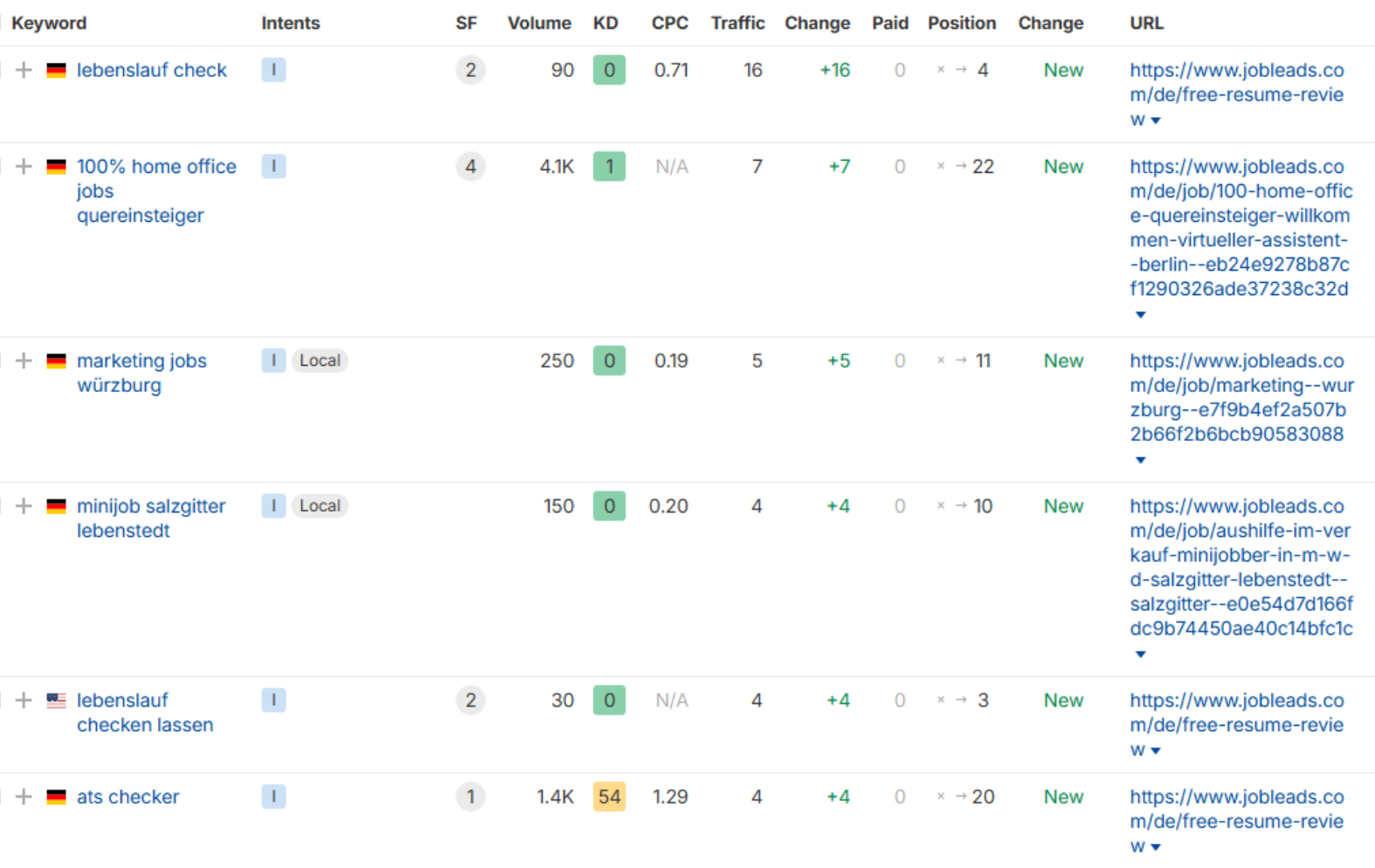
In fact, since activity began, we’ve witnessed a +21% (719 vs 594) increase in job-specific rankings throughout the search results in the German market.
This has translated into an increase of over +40% (451,000 vs. 639,000) in organic clicks coming to the DE site. Our team has actively enhanced the authority and the local relevancy of the site within the DE market, which has resulted in better rankings across the board:
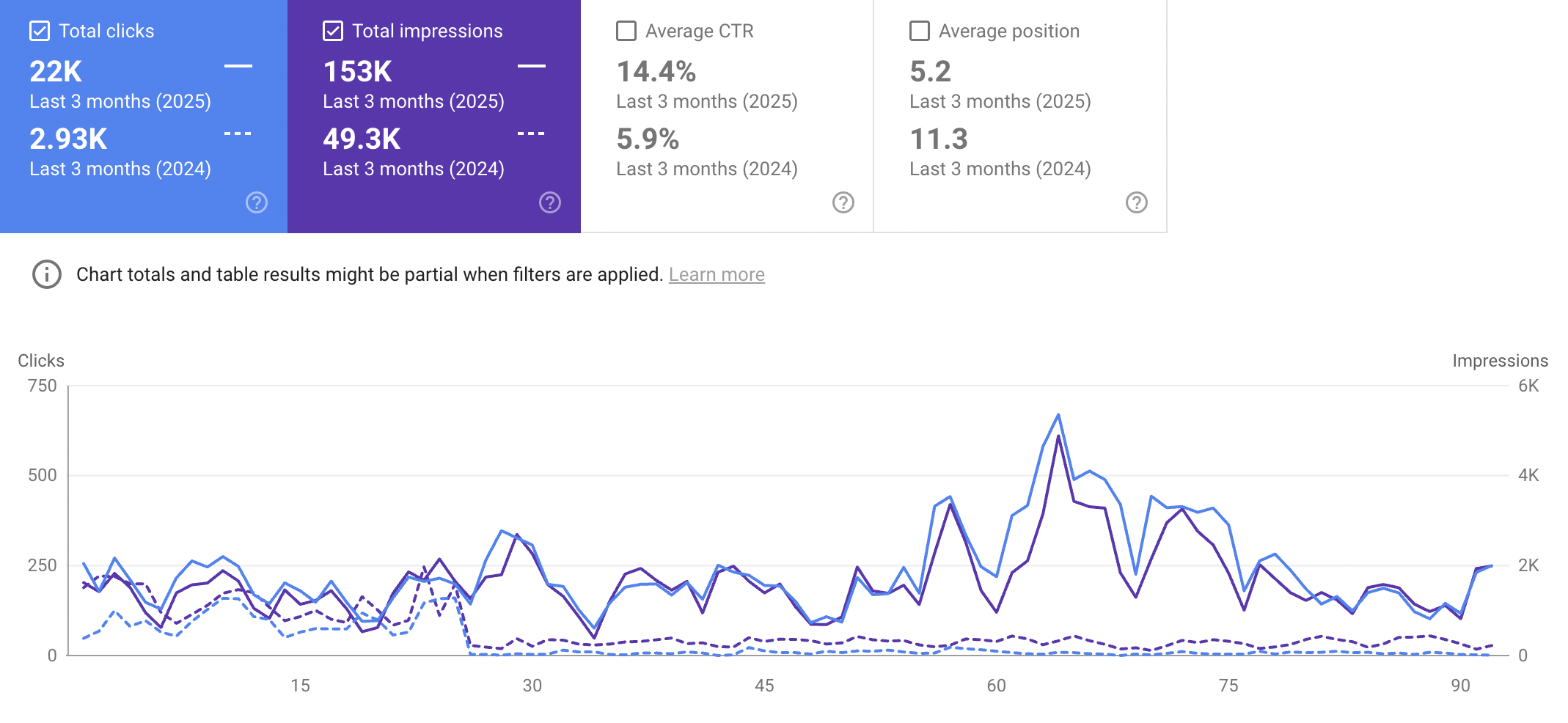
What our Search Director has to say about the success of this Digital PR activity in the German market:
“Wherever your business operates, it is more likely than not that earning links from authority domestic publications will drive growth for your brand. However, you need to be mindful of regional differences within the media to ensure that your link-building campaigns can have the best results possible.
For JobLeads DE, our team of German Digital PR specialists were able to use their regional knowledge to earn the client links from some of the highest German publications. In turn, those links resulted in significant organic growth for the JobLeads website within a relatively short amount of time.”
OLIVER SISSONS
7. Why Reboot Online? Your Digital PR partner for Germany
At Reboot Online, we pride ourselves in our work on the German market, led by a dedicated team of native experts in the field. Our German campaigns have generated:
- Over 1,690 backlinks from over 367 referring domains in total since 2023.
- On average, we have delivered links from 83 German referring domains per client.
- Over a third (35%) of our German-speaking links have been DR75+.
You can find out more about one of our most successful partnerships with a German car insurance brand in this case study.
But don’t just take our word for it!
Here’s what our German-market clients think:
“I want to take this opportunity to sincerely thank you and the team for all the support and excellent work you’ve provided. Your contributions to our German, Austrian, Swiss, and UK websites have been incredibly valuable, and we truly appreciate the collaboration.”
NADIA TARTALO
If you want to find out about where to earn the best links in other countries, we have other market-specific guides:
